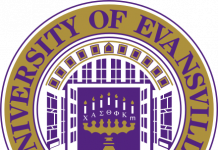Senate Democrats Pushing For More Oversight For Virtual Schools
Haley Carney
TheStatehouseFile.com
INDIANAPOLIS—Senate Democrats say it’s not too late to enact legislative guardrails that will stop future virtual schools from spending tax dollars without any accountability.
Minority Leader Tim Lanane of Anderson was joined by Sens. Mark Stoops, D-Bloomington, and Eddie Melton, D-Gary, called for lawmakers to enact legislation that would provide more oversight for Indiana’s virtual schools.
The lawmakers were reacting to a state Board of Accounts report that found that two schools—Indiana Virtual School and Indiana Virtual Pathways Academy—collected tuition reimbursements for thousands of students who never attended the schools as well as other fees they weren’t entitled to. In all, the schools combined collected about $86 million that the state is trying to recoup.

“We need to have some guardrails. We need to have some accountability,†Lanane said of why lawmakers need to act on bills that Stoops and Melton had proposed in the past.
In addition to the money, the Board of Accounts also found that the directors who were responsible for operating the schools had conflicts of interest because of connections between them and some of the for-profit vendors that provided the educational services.
The schools, which operated under the authorization of Daleville Community Schools, closed in 2019 because of the fraud allegations and the FBI is among the agencies investigating them and those connected with them.
With about three weeks left in the session, Stoops and Melton said they hope to persuade the Republican supermajority in the Senate and House to approve their amendments to existing education bills that would provide for more oversight.
That hope was short-lived. Shortly after the press conference in the Senate Education Career and Development Committee, the Republican majority voted against an amendment to House Bill 1066 proposed by Stoops. That amendment would have would require authorizers to sign a bond so that in the case of fraud the state will be paid back, show they are a valid operator and be clear about what they are trying to achieve. The amendment lost in a 5-8 vote.
Committee Chair Jeff Raatz, R-Centerville, said everyone should be sad about what happened with the virtual schools, but “the Department of Education had the obligation to make sure those students enrolled were in fact there and making sure they were doing curriculum.â€
Stoops and Melton said they would also try to amend their proposals into House Bill 1204, which currently sets mandatory guidelines for a student to be in a virtual charter school and requires them to withdrawal from enrollment if those guidelines are not met. That bill is to be heard in the Senate Appropriations Committee Thursday.
“Democrats have had, in the past, bills which we feel would have prevented this situation from ever occurring,†Lanane said. “We still have that legislation, which is available now and which we are asking to be heard in yet the remainder of this session.â€
Both Melton and Stoops offered up bills during the 2019 and 2020 legislative sessions aimed at providing more oversight to virtual charter schools, but they never received committee hearings.
Melton’s Senate Bill 183 from the 2019 legislative session would have capped the number of students that could enroll in a virtual charter school, which could have prevented a school from inflating enrollment numbers. It also would have changed the reimbursement formula for virtual charter schools to justify funding amounts and added more oversight to ensure state funds be used for valid educational expenses.
Melton said SB 183 from last year would’ve put necessary transparency and accountability provisions in place to protect taxpayer dollars from being funneled to virtual charter schools with no regulations.
“In light of the $86 million that have been misused, I know that we should be offering this again as another option,†he said. “And we can do that yet this session. I hope this misuse will be a lesson learned to the General Assembly that we should address this as soon as possible.â€
Senate Bill 431, authored by Stoops, would have placed restrictions on the entities that authorize charter and virtual schools.
“I’ve authored proposals for the last four years that could have prevented this $86 million loss to taxpayers and students,†he said. “And my bills have been denied hearings each year. It is more important than ever that these accountability measures get put into place.â€
FOOTNOTE: Haley Carney is a reporter for TheStatehouseFile.com, a news website powered by Franklin College journalism students.







